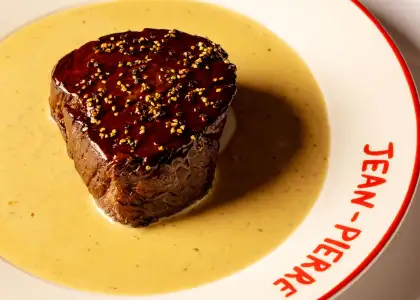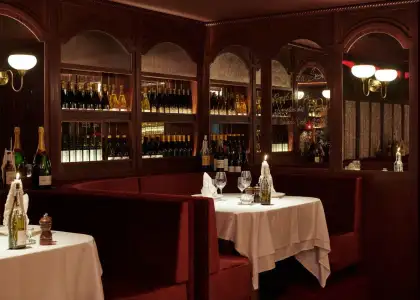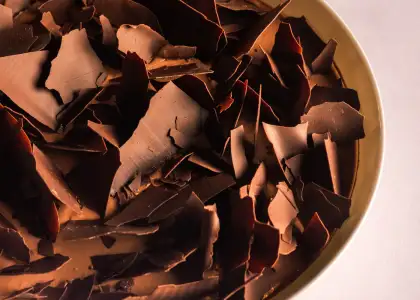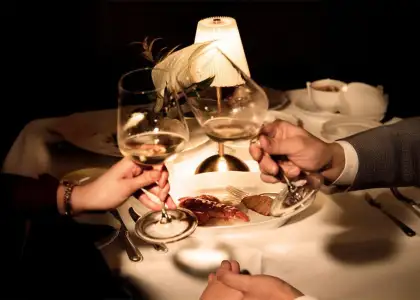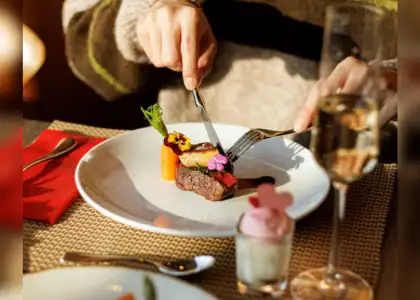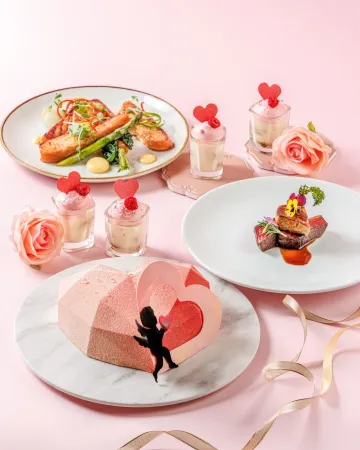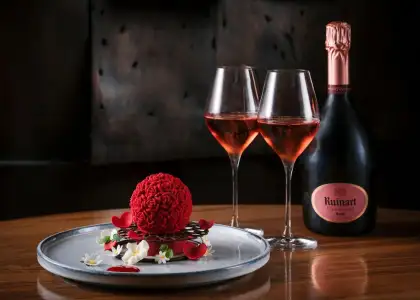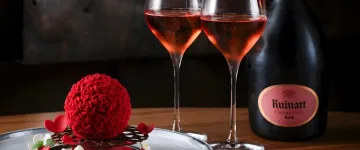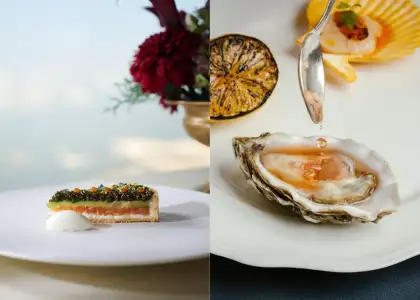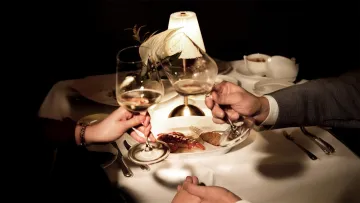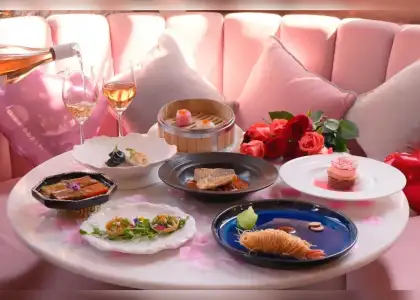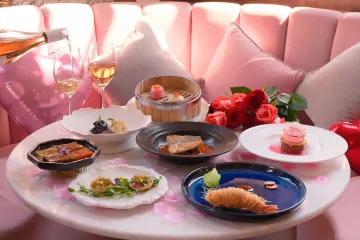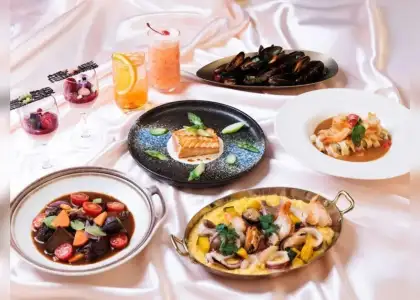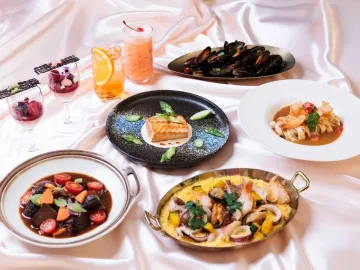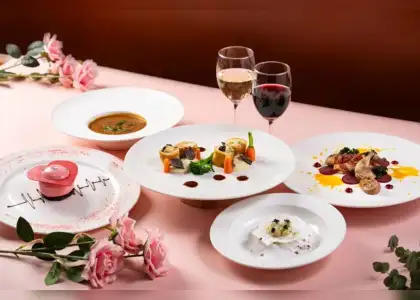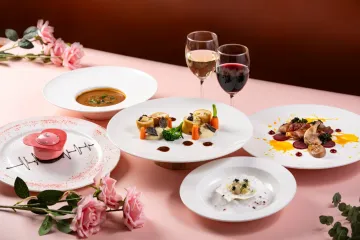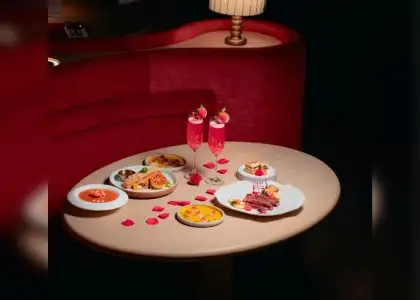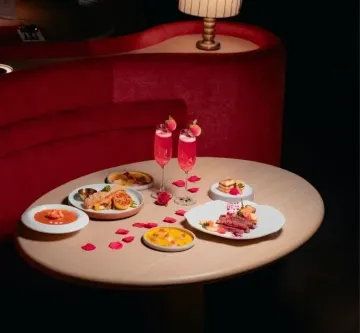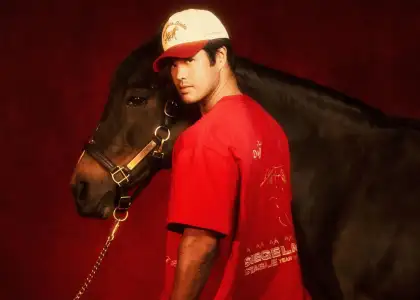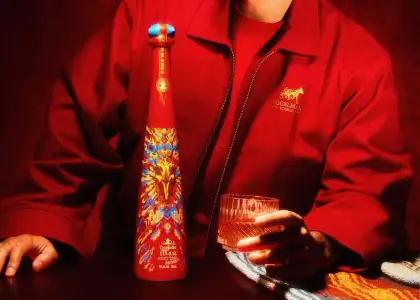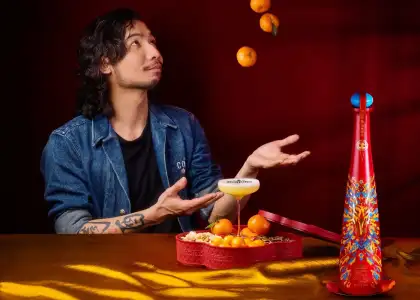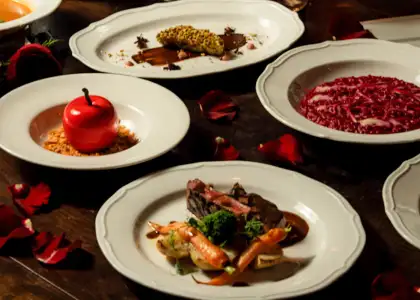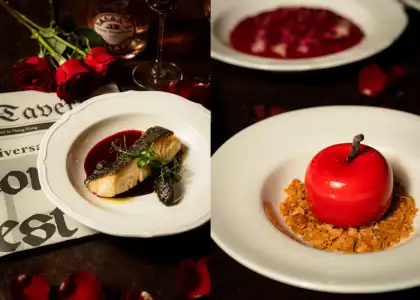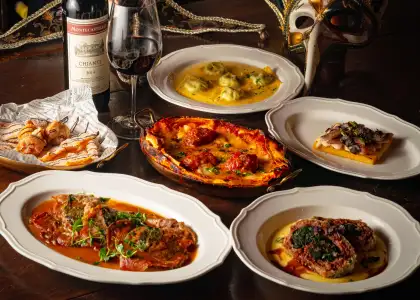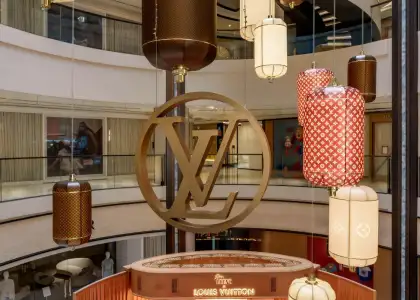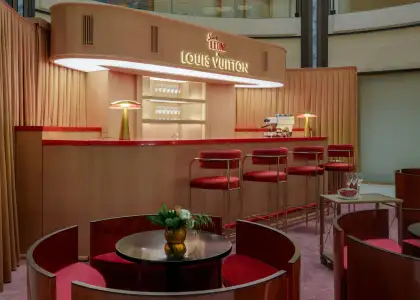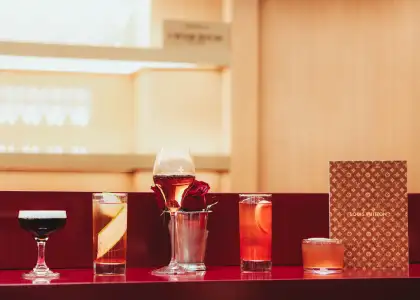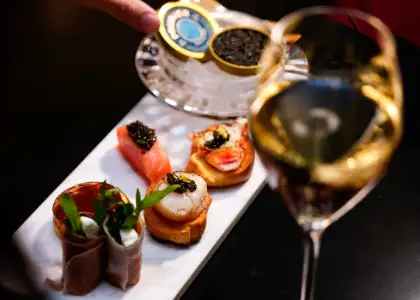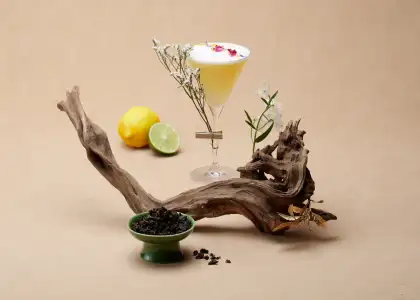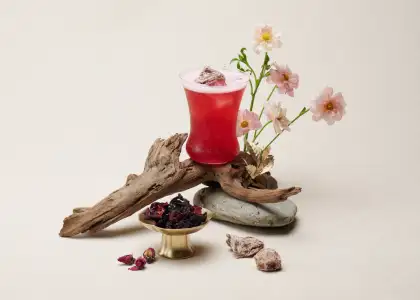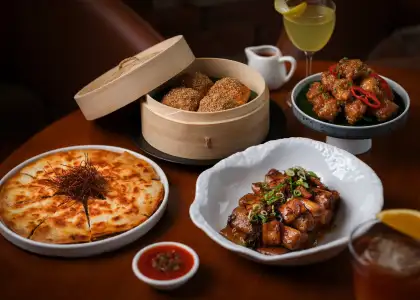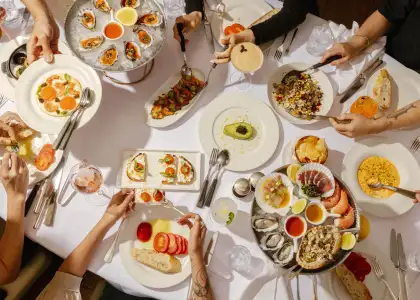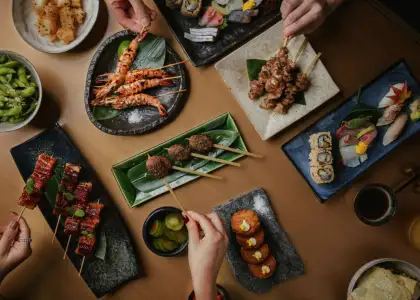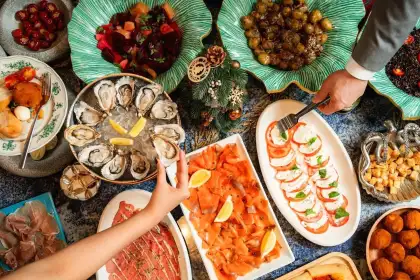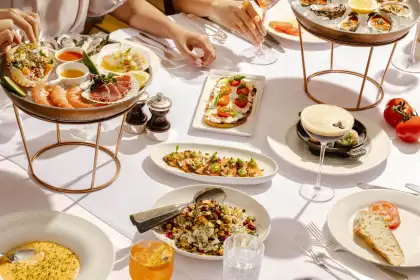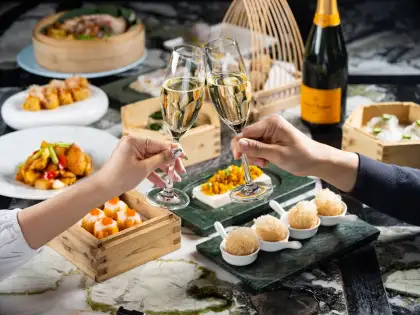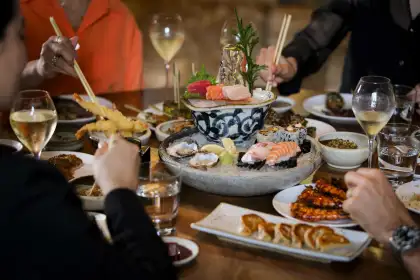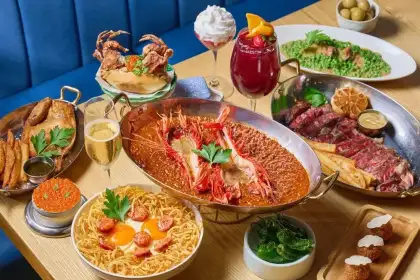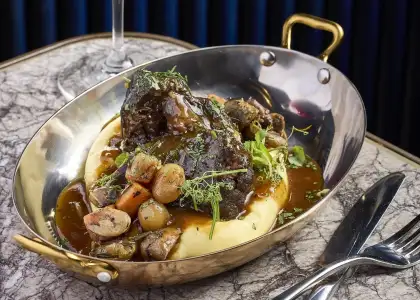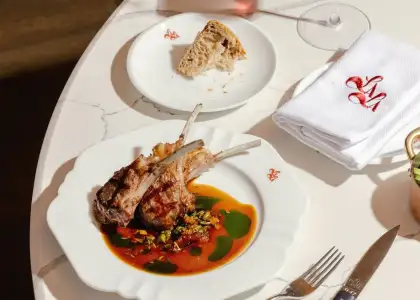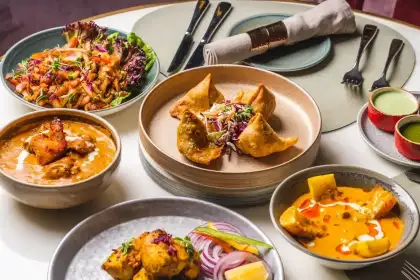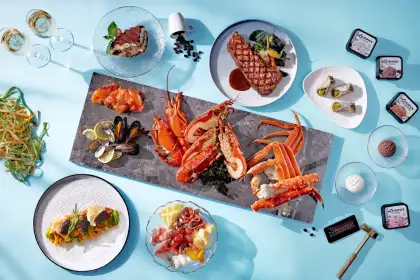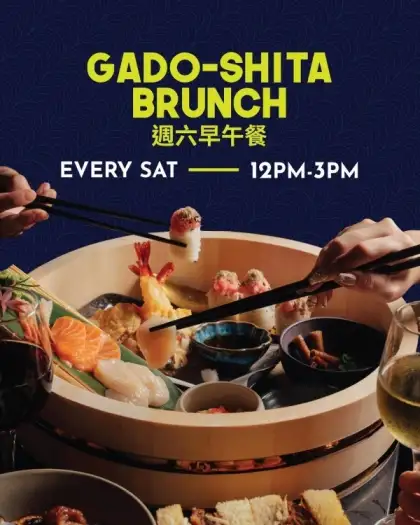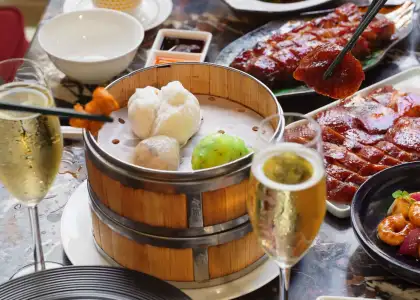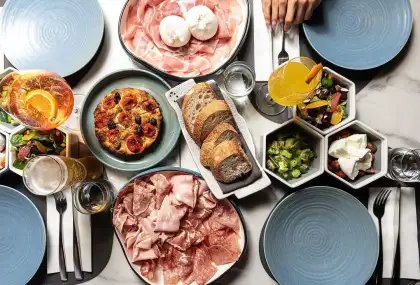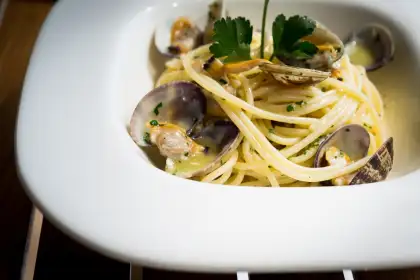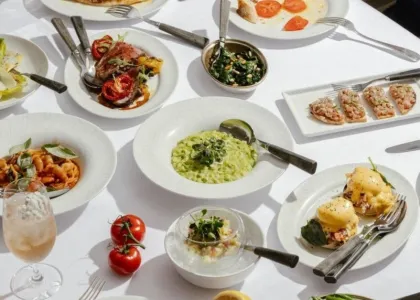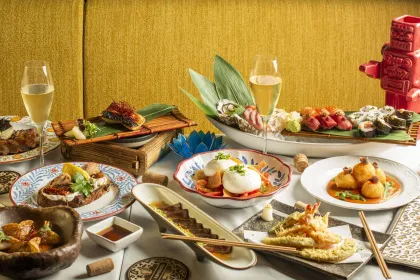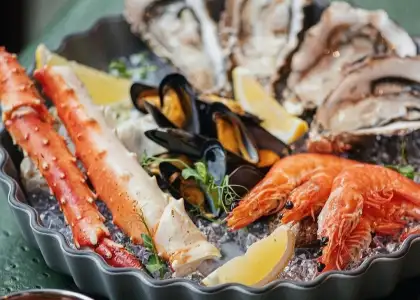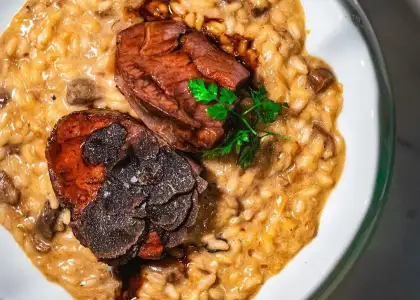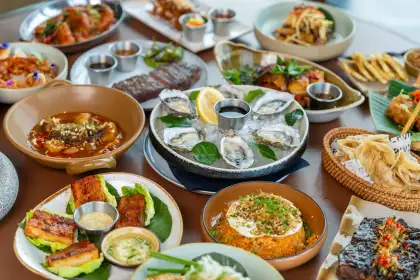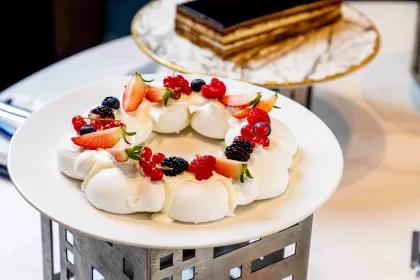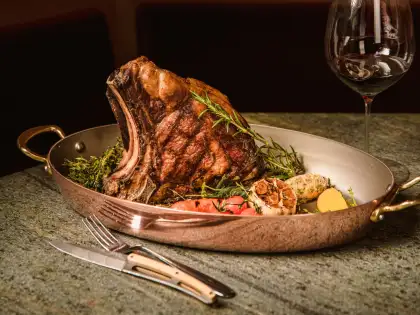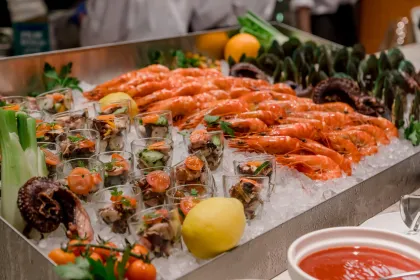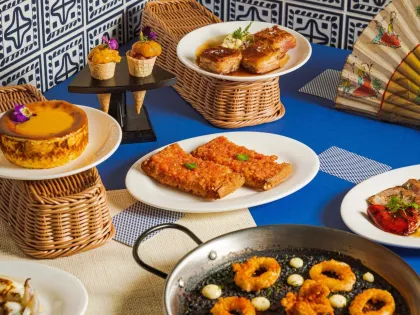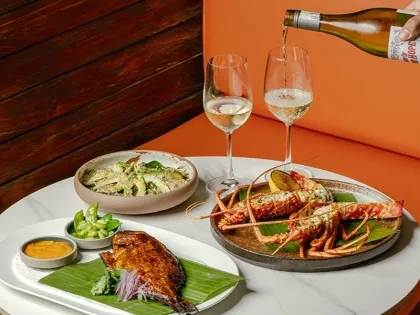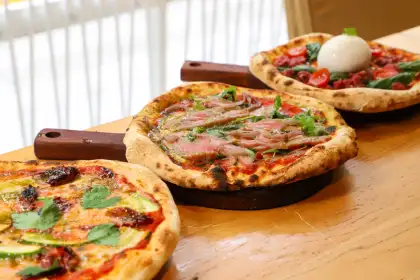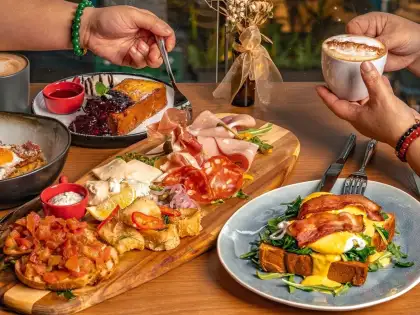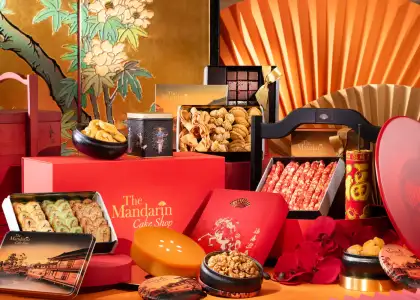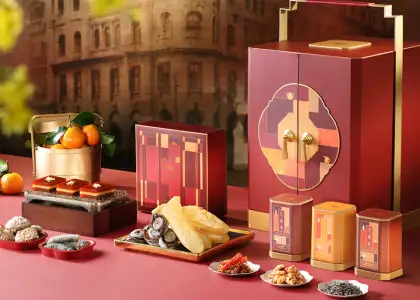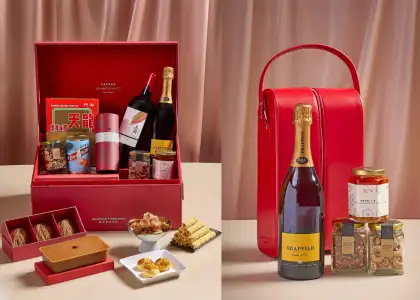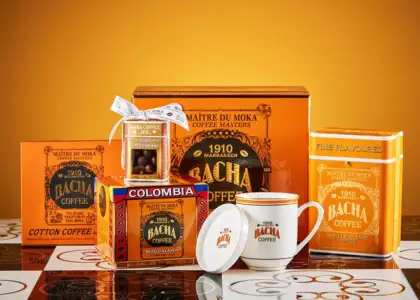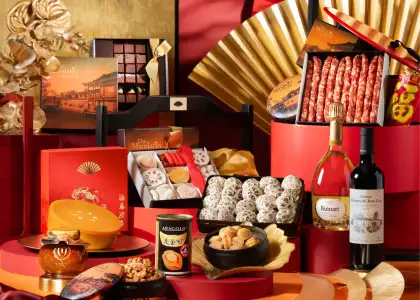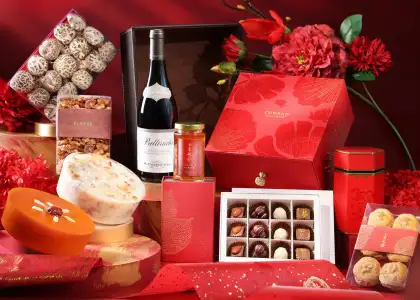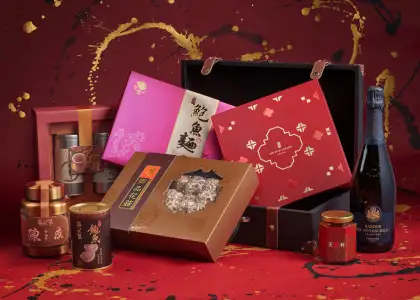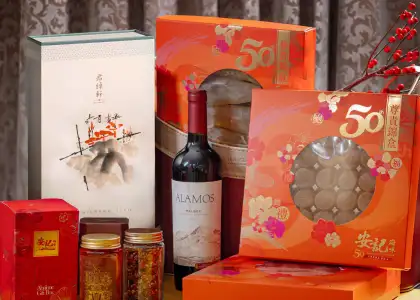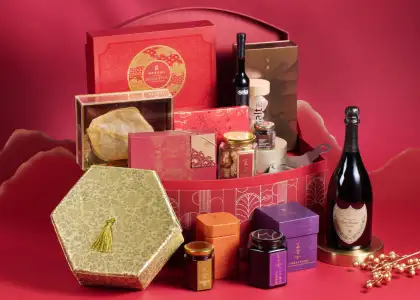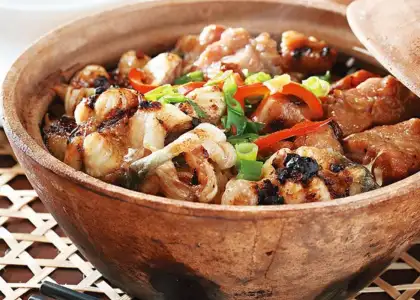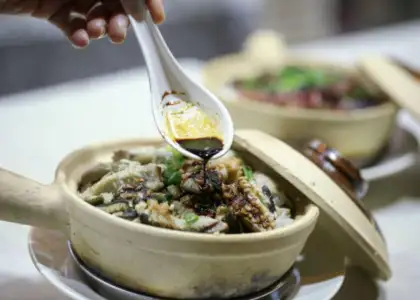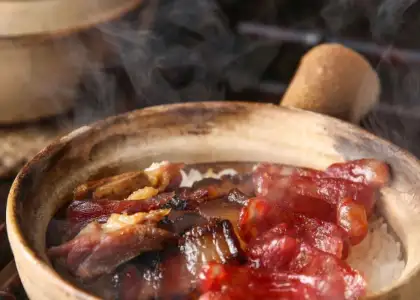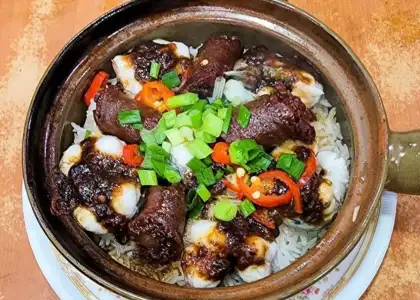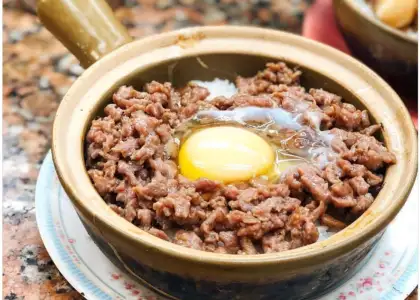Little Bao's May Chow Tells The Delish Guestlist Podcast Her Bao Story
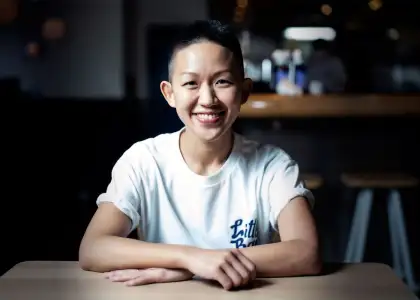
May Chow began her Little Bao story a decade ago, eager to utilise her Michelin-star education in Hong Kong kitchens to birth a restaurant offering accessible meals relatable to both local foodies and visiting tourists.
Arriving to the city in 2009, May’s culinary CV has seen her influenced by Alvin Leung at Bo Innovation, Que Vinh Dang at the former TBLS, and Matt Abergel at Yardbird.Now a defined name brand in the city’s F&B scene, Little Bao blends the foundations of Chinese cuisine, notably the white plump bao bun, with influences from abroad. Her signature bao buns made their first appearance at the Island East Market in 2012, before her first Little Bao opened in 2013 in SoHo.May joined The Delish Guestlist Podcast about her success behind one of Hong Kong’s more symbolic restaurants, and what Cantonese food culture means for her.
The Delish Guestlist explores the stories of Hong Kong and Asia’s most captivating and game-changing hospitality legends, mixing our cocktails, cooking our food, and creating our dream experiences. Listen to what makes the region’s top mixologists, bartenders, chefs, operators, baristas, and sommeliers succeed!
The Delish Guestlist is available on Spotify, Apple Podcasts, Amazon Podcasts, or wherever you get your podcasts. Subscribe today and enjoy!
Enjoyed this article? Check out our previous The Delish Guestlist Podcasts here.
Transcript of the episode with May Chow on The Delish Guestlist podcast:
The podcast transcript provided is generated using speech recognition software and has not been reviewed for accuracy. We cannot guarantee that the transcript is accurate. If you believe something is incorrect, please contact us to make the necessary corrections.
Rubin Verebes: Welcome to The Delish Guestlist podcast, a deep dive into the lives and work of Hong Kong’s crazy food and beverage industry leaders, hosted by The Beat Asia magazine. This episode we speak with Hong Kong's own May Chow, chef and owner of the Little Bao empire in the city, operating her acclaimed restaurant chain since 2013 – where we sat down with May at her Causeway Bay joint after the lunch hour rush. She champions neo-Cantonese fusion cooking and female and LGBT empowerment in the kitchen. We spoke to her about her success behind one of Hong Kong’s more symbolic restaurants, and what Cantonese food culture means for her. Enjoy!
[Sting]
Rubin Verebes: Hello listeners in Hong Kong, Asia, and beyond. We are speaking today with chef May Chow of the eminent Little Bao restaurant franchise, a defined name brand in the city’s F&B scene, blending the foundations of Cantonese cuisine with influences from abroad. Arriving in the city at 2009, May’s culinary CV reaches all corners of Michelin and local, international acclaim. He has worked with Alvin Leung at Bo Innovation, Que Vinh Dang at the former TBLS, and Matt Abergel at Yardbird. Her signature bao buns made their first appearance at the Island East Market in 2012, before her first Little Bao opened in 2013 in SoHo.
Rubin: May, Thank you so much for sitting me down with us.
May Chow: Thank you for recapping my life.
Rubin: Absolutely, how does that sound?
May Chow: Pretty good, time flies.
Rubin Verebes: Born to a Chinese Hong Kong family in Toronto, why did food have such a pull that you're here right now sitting down with us? To flick back on that story, that massive CV you have, the name you possess?
May Chow: I think everything is hindsight 2020. So, in reflection, I grew up in a loving family. My mum was always a, what we call ‘Tai Tai’ [太太], she was a housewife. She didn't have a career, but she was Shanghainese, outspoken, and loved cooking. And so, I think being very close with her, seeing her cook, and, you know, she hit me when we played piano, but she didn't hit me when we, you know, made food.
So, you know, naturally a kid wants to be good at something they're commended on, and it was something she did with me very lovingly. Now I know that it was passed through generations, from her mother to me, so I can see why that passion was inherent.
And then, of course, when I was young, I actually had ADHD, and so for many, many years in Hong Kong, from schooling, I thought I was not very smart. I thought there was something I wasn't applying in school. And eventually I figured out, you know, my calling for through food, but also my sense of learning. I like tactile things and I like learning through experience.
And so all those things really applied well through the F&B industry, and it was very personal, and that kind of energy inherent within restaurants and food is exciting.
Rubin Verebes: Was there a reason coming to Hong Kong in 2009? I mean, I came in 2009 for a reconnection of this sort of Cantonese identity. Was that sort of a search that you were on?
May Chow: Early on that time, I could have married my gay best friend and stayed in the US, or moved back to Hong Kong. So it was not, I could not get a visa in the US. And then I returned to Hong Kong, and it was also a time when I haven't been with my family for a long time, so it seemed like a good time to reconnect as well.
Rubin Verebes: Sure, sure, was there any doubt that you wanted to work in restaurants in Hong Kong?
May Chow: Actually, Hong Kong gave me the opportunity, because when I graduated from college, it wasn't that easy to get a career in food in the US. Plus, you know, I was on a student visa, so it wasn't easy.
When I returned to Hong Kong, I had the privilege of living at home and not having to pay rent, which allowed me to be like, “I want to try.” Like, I've worked at hotels and catering companies, but as like, I've worked at more admin or office jobs, and I didn't enjoy it at all. The only thing I could think was being in a restaurant, so I thought I have to try. And so that was around, I don't remember how old I was, maybe 22, 23? Right after college.
Rubin Verebes: So it doesn't date back deep. I guess professionally, in jobs in your childhood adulthood, it started as a way to occupy yourself.
May Chow: It's interesting, because I think I wanted to go to cooking school when I was a kid, but my parents were like, "You're going to college". So I went to college, and then I graduated from college, and I tried to do the normal trajectory, and I just couldn't.
So I think after I, you know, did a few years, I was ready to dive into F&B.
Rubin Verebes: So living under your parents’ home and not paying rent, but looking forward to a career post university, do you think it was hard to convince your parents that this is something that I can do, this career?
May Chow: Sometimes people fail not because parents were supportive or not supportive. Their way of supporting was very interesting, was to give you options when you're really tired. Meaning like, ‘Hey, May,’ like I'll be like exhausted coming home at 2:00 AM, and they're like, “Hey May, if you want to stay home and not work, we can take care of you and you find another job.”
And I'll be like, “Oh, shut up, I just need to sleep” and get [this] over with, because they wanted me to quit. They wanted me to think about a better option.
Rubin Verebes: And do what?
May Chow: But there was a lot of truth, like, to be honest.
Rubin Verebes: Mm-hmm.
May Chow: Like even when I mentor young girls or young chefs now, the reality is that we fell in love with the- we didn't, you know, look at other restaurants and go to Chinese restaurants or go to restaurants that we went to as a kid and be like, “I want to be that guy.”
You know what I mean? I watched ‘Yang Can Cook’ on TV, Netflix came along, you know, Anthony Bourdain, it was a whole sexy, media driven, idea about what a chef is. No one thought like, ‘oh my god, my life career would be working 16 hours a day, seven days a week, doing the same thing over and over again’.
Rubin Verebes: Were you scared of, because you mentioned Anthony Bourdain, the idea that food is not just food, it's the adventure, the exploration of society and culture. Did you feel attracted to what food represents, rather than what it is building a community?
May Chow: I think what the job entails is, and what we all aspire to, is what that 1% is doing.
Rubin Verebes: Really?
May Chow: So I am lucky that I'm in that 1%. So I can create food all the time, I can communicate food, I can talk about the philosophy of food, you know, all the diasporas of Chinese cuisine, but to be real, the day-to-day job is making the same thing: one menu for one year, two years, 10 years.
Rubin Verebes: Yeah.
May Chow: And now I see it, [what’s] actually interesting. If you want to get a three Michelin star, I see it like almost like running for the Olympics. You can't do it for 50 years. Like you could, but you could like, you know, look like, like Gordon Ramsey, and look like you're just dried out for 30 years, you know what I mean?
Like, you could! and like, you know, lose a liver or two. But the reality is that if you see it as you have to start young, you have to commit 16 hour days, six days a week, and you just chase it. You chase it for about a decade, 15 years, 20 years, until you get three stars. And so you see someone like Marco Pierre White, maintaining three stars is horrific.
It's like playing defence for eight years, but you're like, you know…
Rubin Verebes: You don't want to get wrinkles on your ears.
May Chow: And it's different, because once it's proven successful, you can't change anything. So you maintain the same menu for another eight years, and then he retired. It's like, this is enough.
And so if you can see it that way, it's actually more purposeful, because you're not like, “I'm going to have three Michelin stars for the rest of my life.” I'll have it for 10 years. It's like, you can have three Olympic golds, you're lucky if you have five. And then that's it, and then move on. Move on to something else.
Rubin Verebes: So when you entered F&B and had this idea like, “I don't want to do the three Michelin stars”, what was the goal you had? You didn't have a goal?
May Chow: No, I didn't have a goal. Usually people who are this romantic or passionate are not that logical, and I was a creative, and I realised that creative people all have horizontal careers.
Like they were never like, they're like, “Did you climb the ladder?” I was like, I did not even think I was climbing the ladder. I was like, “Oh yeah, he cooked so well! Let me follow him.” “Let's go to this restaurant.” “Let's go to that restaurant.” I was lucky enough, but I think inherently I wanted to be an entrepreneur, beyond being the title of ‘Wanting to Be a Chef’.
I wanted to be an entrepreneur. So very early on, I literally wrote, you know, a diary of Alvin Leung, and every time he did something I didn't agree with, I write down, ‘when I become boss, I won't be like this’.
Rubin Verebes: Was it interesting or captivating to work with him?
May Chow: Everyone is successful for a reason.
Rubin Verebes: Mm-hmm.
May Chow: and he was highly successful. I understand why he was important on many levels. He ate well himself. He wasn't professionally trained, so I wouldn't say you would learn from him in terms of technical skills as a chef, but how he presented himself, how he knew where the market was driving, how he could get three Michelin stars or get to that level. I think he had a clear idea of what that meant.
Rubin Verebes: Sure, sure, sure.
May Chow: And how to, you know, because you have to understand that year or that time, no one [had] ever done that in Hong Kong before, and he was the first hometown hero. Someone that was at that calibre, but also to be that internationally renowned, like everyone knew him across the world.
Rubin Verebes: Do you think, do you think you followed his footsteps in flipping Cantonese cuisine on some head, looking at specific, I guess, tenets of traditional fairs that you'd find in Hong Kong and putting a twist on it?
May Chow: I think he definitely gave me the taste of what it meant. I share [this with] creatives all the time.
Rubin Verebes: Mm-hmm.
May Chow: If you're serving a local community, you're hyper international. If you're serving an international community, you're hyper localised, because if you want to represent Hong Kong, you need to represent the city, the ingredients, the story, everything. You're the hometown hero for the world.
Rubin Verebes: Absolutely.
May Chow: There's a huge difference. Like I always say, like if you're Bruce Lee, you were promoting Kung Fu to everybody. You weren't just doing it for the Hong Kong audience, so knowing that my goal was to be international, I wanted to be iconic in the whole F&B community.
Rubin Verebes: More than a decade ago, this was your goal?
May Chow: Yeah, we were writing business plans and my friend was writing for me, but, still clueless, she's like, “Oh, you're gonna be the hometown hero”. And I was like, “What do you mean?” She's like, “because everyone else is international, everyone's doing international cuisine, no one's talking about Hong Kong. So if anyone wants to know more about Hong Kong, they'll come to you.”
Rubin Verebes: Do you think you've accrued this international name for yourself, because you've taken the bao and made it into a burger and brought these different ingredients, these different cuisines, fusion that together that has brought the local through to the international?
May Chow: I think that's like, I don't think it's, so in hindsight, not that moment. If I had to hindsight look at it, what we're achieving now is that 0.1%. So it's like me telling you, I'm not saying I'm Dua Lipa, but like, can you follow Dua Lipa’s footsteps and achieve the same success?
If she was a brain surgeon, you could follow exactly the same steps and become a brain surgeon, right? So it means like it's a lot of luck, a lot of society, what the world was trending. I was the first restaurant probably in Hong Kong that was taking something very local, but international and in a very small space.
It was when Instagram just started, we became viral without any strategy to become viral, no marketing. I picked green tea as an ice cream sandwich, because I was too lazy to make a real dessert. So my dessert pastry friend was like, “just fry the bun and stuff some ice cream inside,” she's like, “why do you have to make a chocolate cake? Who cares? Just stuff it.”
I was like, that seems lazy… and then I picked green tea, and it's interesting because we were number one on Open Rice, and I was like, “why are we number one on Open Rice?” Because number one was green tea ice cream sandwich, number two was green tea latte, and number three was green tea souffle.
Rubin Verebes: Wow.
May Chow: And I was like, I did not- what if I picked chocolate? You know? And then why would my mind pick green tea? Because I thought everyone in Hong Kong likes green tea, pick green tea! I didn't know the impact of what that meant and how to create that, so you can only see in hindsight, 2020.
Rubin Verebes: Do you think this hindsight 2020, we're in this space right now in Little Bao in Causeway Bay compared to the former SoHo home and then now the second SoHo home? Are you playing or have you inadvertently played to the tastes and flavours of Hong Kong foodies, people that eat in Hong Kong, Instagrammable bites, cute looking appearances of the food, something that's very consumable, I guess, not using challenging recipes?
May Chow: I think, no, I think it's when we wanted to do it. At this point, I went to Bo Innovation. Bo Innovation showed me, we went to Sydney Food and Wine Festival. He took me to Singapore. Every time I went abroad, they're like, “Oh my God, is he the demon chef from ‘Parts Unknown'?”. So I knew the power of what storytelling was.
Rubin Verebes: Sure, sure, sure.
May Chow: And then when I went to Matt at Yardbird, and that year when I worked with him, he broke every paradigm. Everything he was, I wanted to be. He had the sense of community, every brand, every touch point was a reflection of his personality and what he believed in.
He was genuine, like a great boss, and everyone respected him, and the people who came were cool. He was the first person where I was like, “I want to be like him.” Because when I was with the Alvin and Que, I was like, “Oh yeah, whatever” like, there are some parts I appreciate about them, but I couldn't see myself like them.
So Matt was the first person, he was a great mentor. Before we went into execution, he's like, your branding sucks, you need to re-brand, this is no good. He was like “this idea's not original enough. Do better”. And so I think that's him being honest with me, and he found me actually my first location, because it was so hard to find even a shop then.
So if you ask me now and then, like our proudest moment, then was to distil what I learned, but try to find something honest. And I think what I loved about Little Bao was that we were social, I loved to party. So music, drinks, like the atmosphere, and the food itself was the culmination of my random life experiences, like, you know, from Rave to Coachella to whatever, and then also bringing that community together, so I think that was great.
And then being able to then take that item, and I thought, we must make it so that my grandma doesn't think it's for white people, but white people don't think it's too Chinese. We're trying to ride the line, and it's actually really hard. Because you can do fusion in New York, I'm serving 50% local customers, and the bao is about 10 times more expensive than a Char Siu bao.
Rubin Verebes: Like a Gua bao?
May Chow: Any bao! and actually even all the Gua baos that opened that were kind of gimmicky or whatnot, they've all closed.
So our proudest moment now is like, we've been around for a decade. That's like dog years, like restaurant years, and then passing through COVID and then still surviving. It's beyond - like my proudest moment is like, how do we become timeless? So my goal is like, I need to stick it through for 20 years.
Rubin Verebes: Wow.
May Chow: And then it's not even like, do you like it or not? It's like if you come to Hong Kong and don't eat at that, you know, tomato soup or beef noodle place on that corner, you're not local. Like, I'm trying to get there, you know?
Rubin Verebes: I mean, it's an unbelievable success story. Just hearing that number ten coming through my headphones and knowing that leases last three years in Hong Kong, and then some other concept comes in. Do you think you always wanted to do East meets West, and do you think that was the way you captured both sides of Hong Kong?
May Chow: I always knew there are many things that go through my head. I wanted it to reflect the culture, because that was also like, that was what was expected. Because you know, even when I read a lot about successful chefs, sometimes a community drives you.
We were talking [about] the first, Noma interview. The guy was like, you know, he was sitting down, he was talking about his food, and then the reporter asked him, what are you doing for sustainability?
So then he's like, “Oh, I don't know, like nothing”, but then you're embarrassed, so you go home and you're like, “why am I not?” But how many people ask you, like, everyone asks me, what are you doing for Hong Kong? What are you doing for women empowerment? What are you doing for LGBTQ+? What are you doing for sustainability, and how are you driving the direction?
So it sets big goals. It's cool. It's a lot of responsibility, but I find that right, quite, fun. And so for me to say that money is not the ultimate goal for food, but in Hong Kong, you need to be financially savvy to survive.
So if you don't know how your staff is getting paid or what's going on, you can't survive here. So you cannot be creative, because you have to withstand a lot to even get there, where at the point you get to be creative. Right?
Rubin Verebes: Absolutely.
May Chow: And then two was like, I was worried about being a one hit wonder. And so by the time I was trending very hard, I was already ready to progress. Like, “Oh, I can't be a hipster and be a hype beast all my life.”
Rubin Verebes: Mm.
May Chow: Clearly there's an age group for this, and so I already was, in Women's Foundation, doing corporate, you know, many initiatives and talking about bigger purposes for the brand, and myself included, that was beyond just, are you the most trending number one thing.
Rubin Verebes: So I guess in 2022, you have also initiated many popups with big names or foundational restaurants in Hong Kong that are trending right now. Is that a way to keep Little Bao fresh and innovate on the one product that is the ‘bao’?
May Chow: Well, I'm a big fan of Jane Fonda and talking about Richard Ekkebus. It's like, you need to know at one point, either you are the young kid that’s fresh, or you're mentoring someone that's fresh, or you're partnering with someone that's fresh.
Rubin Verebes: Mm-hmm.
May Chow: And to feel energetic is that, you know, I don't care if they're 20 or 30 or famous or not. It's to trigger you to want to grow all the time. So for me, it's like we do partnerships where anything that intrigues me like could be - so right now we're doing one with a retired 70 year old Sichuan master chef, and he's coming and he's retired, and I met him at this random event.
Rubin Verebes: Wow.
May Chow: He's done Sichuan food for 50 years, and doing a popup here. So I don't know if that attracts 20 year olds, but it piques my interest.
Rubin Verebes: Absolutely.
May Chow: You know what I mean? It's freaking cool. Someone like Richard, my whole idea is that we're trying to tell a story where like Zara or whatnot, like there's Karl Lagerfeld that works with Zara and everyone can buy it.
So I told them like, “Richard, not everyone can spend [HKD] $1,800 to have your meal, but for [HKD] $78, [HKD] $138, it's an affordable luxury that they can understand more about you and your life, your achievements, and your philosophy about food in this dainty little bao.” So that's what our mission was when we started that partnership.
Rubin Verebes: So essentially, you could fit any cuisine, concept, popup, collaboration between those buns.
May Chow: Yeah. We like to think this fluffy bond is non-invasive, we can talk about women empowerment in this fluffy bun, we can talk about LGBTQ+ like “Haha, you should do better!” in a bun.
You know, that kind of vibe. So I always thought it was fun, because even when we did our first concept, it was about when we served this bun. Maybe you can't accept Sichuan hot pot yet, because there's floating chillies. It's like chicken with bones in it, with the head, but you can eat it inside a burger.
Rubin Verebes: Sure.
May Chow: And I can tell you about the hotpot, I can tell you about the culture.
Rubin Verebes: So it's a perfect vehicle for introducing western mouths for eastern food and eastern mouths for western food.
May Chow: Anything! And I think what it is is like, what is that purpose? And I love this restaurateur Alan Yau from London. Someone asked him, “Is interior design important for the food business?”
He's like, “Uh, not really. It's the bottom line in operations. But really, if I can't even have design, why am I doing this? It's not even creative at all.” You know what I mean? Because you're just slapping noodles and doing operations, and it becomes an operations job. So I find a lot of meaning in my work, because I create meaning within it.
If not, we're just serving baos all day. With four flavours, two ice cream challenges, and four cocktails, right? And so it makes the job more fun, more interesting, and more meaningful to me. Those actions, whether strategic or strategic for the long term, I enjoy pursuing them in that way.
Rubin Verebes: So I guess you mentioned filling the buns with women empowerment, those topics, women empowerment and LGBTQ+ education. Has that been something at the forefront throughout, with Hong Kong, where many white male chefs are involved in restaurant businesses, and to be different?
May Chow: I think it's some white male or male anything. I was just at a- I'm always invited to these panel discussions, like ‘Oh my God May', like it's a financial tech and finance, and they're like, you're the only woman on the panel. I'm like, “Come on, like can you find someone in your industry?” But you're finding someone in food to be the only woman on the panel.
And I watched this show on, I love this show called Hacks. I don't remember. It's like two stand-up comedians, an amazing show. And I realised that sometimes I do stand-up comedy. It's like, ‘ha ha’, I say it as a joke, but like, you know, just to put it out there.
So I've been in meetings where I'm like, first of all, people have a hard time telling the age of Asian people and they undervalue them. So I go into meetings, I'm like, I know you think I'm young, but I'm 38, and have been in this industry for 15 years. I do a lot of dollars.
In an all, corporate meeting.
Rubin Verebes: Yeah.
May Chow: And then I'll say like, I want the white man budget. So whatever budget he's getting, I want that budget. If you want me to open a restaurant, I don't want an Asian girl budget. And then they're like “uh uh”, but then the moment I was like, “don't let me find out that budget, because if I find out the white man's budget, I want that budget”.
Rubin Verebes: Aye, aye.
May Chow: Right? And so it's like a joke, but like, once you say it out in the air, it progresses through, you know?
Rubin Verebes: So you want, you want to be brutal with the way you yourself could be viewed or sort of undersold.
May Chow: I already know the reality, and I'm just trying to, you know,
Rubin Verebes: Twist?
May Chow: Navigate it, twist it.
Rubin Verebes: Okay
May Chow: And like, get there, and then, you know, bring people with me. So the challenges of what we face, whether it's food or, or whatnot, like, make my work fun. And so, I love mentoring young girls, and I love, you know, integrating those into the business. And so, it's interesting because I am the founder. So, you know, many companies have pillars, mission statements, and vision statements, and it came from me.
So I think we didn't say like, “Oh, every year we need to do for LGBT initiatives”, we just do them. Because it's like, if someone asked me, I'm like, “Yeah, sure, we'll do it,” and then naturally it becomes something
Rubin Verebes: Sure, sure, sure.
May Chow: Now that we're in the decade, we hope to build, but we're still navigating because it’s still a business. Right now, you can see we're doing a lot of Chinese turnip cakes.
[And] that's, that's great, and I like finding niche categories that we can excel in and have new conversations for.
[Interlude]
Rubin Verebes: Stop the podcast! Just cutting in to say if you’ve enjoyed this episode so far – check out thebeat.asia for greater content like this. The Beat Asia is the fastest growing regional publication for local news, happenings, culture, and more, so be sure to check us out at thebeat.asia – alrighty, let’s get back to May!
[Interlude]
Rubin Verebes: Do you think the business element has brought you through the initiatives of opening up Little Bao Bangkok through working with Second Draft through the former venue of Happy Paradise? Has that been expanding your portfolio and building beyond Little Bao, which is limiting, in a sense, building up this empire that can allow you to build the business in a, I guess, fiscal sense?
May Chow: You know what's interesting? You know how they talk about, I literally thought about this two days ago. My industry just popped a bubble.
So you know, they have NFT bubbles, crypto bubbles, and I was like, “Oh, I was an F&B bubble and I didn't even know I was in the bubble!” So we were growing like I was joking that day, like you could be an idiot in 2013, and you would break even in a restaurant initiative like it. You would [have] thought you were a restaurateur, right?
You're like, “Oh, I'm doing so well,” but actually you're not. Everyone is doing well because it’s at the height of the market.
Rubin Verebes: When did the bubble burst?
May Chow: This year.
Rubin Verebes: Really?
May Chow: So Noma, the number one restaurant in the world, just announced closing by 2024, because there was a huge issue that interns were not paid to work at these restaurants.
So I know all about these restaurants - intern and full-time, 10 to 90. There are 10 full-time staff, 90 interns, [a] hundred chefs serving a 50 seat restaurant, each working 16 hour days. And so they, this year, I think they offered pay, and then immediately they're like, we're closing.
Rubin Verebes: I think it was a report of 50,000 USD per month that they had to pay to interns.
May Chow: Yeah, yeah, yeah, and that's not even that much. But then, because there were only like 2,700, but what happened was in the US, and it started to become illegal, and you can't make people work 16 hour days and things like that.
And so, you have to understand, like what happened during that time was Asia's 50 best happened. World's 50 best happened. So I was part of Asia's 50 best, you know, engine. I got Best Female Chef of Asia.
Rubin Verebes: 2017, Yes.
May Chow: And that award made me do a hundred interviews that year.
Rubin Verebes: Really?
May Chow: So when we're attracting, we're not attracting what Hong Kong people like, we're attracting globally that 1%.
So if you think about the functions of restaurant[s], so if you go to Starbucks, you go because you drink coffee and they fulfil your idea of where you wanna get coffee, period. Noma, no one's going like, “Oh, I'm gonna get some fermented, you know, mould tacos for lunch”. Like, no one thinks that way. They're like, “I'm gonna be the number one restaurant in the world”.
Rubin Verebes: Sure.
May Chow: I'm gonna bring my client to the number one restaurant in the world I'm gonna bring - and no one knows what number one means, but it sounds good! So when they became number two, like one year, they dropped [to] number two, 50% of their bookings cancelled. So your most important goal is to get that title, because the moment you don't get that title, you have no function in society.
Rubin Verebes: There's a bit of a disillusionment.
May Chow: Yeah. So you have to know what you're getting, like why are these people chasing these stars? Because at that point you're not like, how do you define which fine dining restaurant to go to? It's number one, it's three Michelin stars, it's got four hats. It's blah blah blah, it's all accolade based.
Like you're not going to LV to buy the bag, because you actually know what craftsmanship is in there. It's because you're buying LV and your friend knows how much it is, and when you give that gift, they're like, “Wow, you're generous!”
Rubin Verebes: Do you care about these accolades?
May Chow: No, but when I won Best Female Show of Asia, I drank the Kool-Aid. I was like, “Oh my God!” I was like, all 50 was all men. So on that awards ceremony, I'm like, “Careful guys, I'm coming back, I'm definitely going to be in this 50.” So I built Happy Paradise. I was like, I'm going to be the craziest, most adventurous, more forward-thinking.
Which is fine with those restaurants, because no one needs them as a function until you get that award. So you're basically chasing that award. So if that award takes you 10 years to get, you have to pay out of pocket for this initiative, until you get there.
Rubin Verebes: Mmm. Interesting.
May Chow: So usually it's a billionaire or like somebody needs to fund this project. At that point, it’s like having a horse, a yacht, you know, like, you know what I mean?
It's not like, how many lunches did you sell? You know? So then you're just attracting that 1%, the 300 voters, the billionaires, the key influencers or things that put you yourself in there. So, of course, I tried it, but then I think, you know, it's a different game.
But then people get confused, and chefs get confused, because chefs are always a blue collar job. Now it's a fancy job, right? And to be honest, if it wasn't a fancy idea, why are these college graduates going to these blue collar jobs, right? So the blue collar job risen chefs get upset because they're like, “Oh, these chefs these days can't work!”
They went to Harvard! Like, of course, they don't want to spend 10 years scrubbing a pan, you know what I mean? They could be a CO in three years, so why are you making it so difficult? Like think about how to scale up this operation and teach them faster! So there's this disconnect of old and new.
So it's interesting. I rode the new, and I rode the bubble until it burst, you know? And survived somewhat.
Rubin Verebes: And so after the burst of the bubble, you want to, I wouldn't say downsize, but you want to focus on the children you have still here in Hong Kong?
May Chow: Well, like Warren Buffet says on investment: be patient. I have nothing to prove. I don't need to prove to you that to stay relevant, I have to open this year. I still think it's going to be a horrible year.
We're trying to survive, and we want to grow sensibly and realistically. So to minimize my risk, because risks, when I was young, like all those franchises you were taught about, as long as someone asked me, I would do it.
Rubin Verebes: Really?
May Chow: Yeah. They're like, do you franchise? I'm like, give me 50 K, I can franchise.
Rubin Verebes: Wow.
May Chow: So they gave me the money and I went to a lawyer. I'm like, can you help me do a franchise manual? So I was a hustler, you know. I wanted to be brave and I wanted to feel like, you know, I was willing to be an entrepreneur and push it. But with Second Draft was truly like, I wanted that location.
Rubin Verebes: Mm. Tai Hang, yes.
May Chow: I want, I love that location. But Little Bao was not fit for there, and I don't know what to do with it. I love the beer guys, and I think they had a good idea. So I went in, I was like, “Hey, can I be your food partner?”
And I was stuck, because Little Bao was not strategic at all. It just came about as like a chance and opportunity that led to like ‘you must open’ kind of vibe. So for the next restaurant, what was to follow up? I really had no clue.
So I was like, oh, you need to take a break. I'm going to do this project to refresh myself and think about what's my next step.
Rubin Verebes: So when you opened Little Bao, in Bangkok, was that a way to plot for more critical success?
May Chow: Oh, no. It was, I wanted to try something, and I was like, Bangkok sounds cool enough, but actually no one would ever go. So I was like, if I fail, who knows? That was my first thought. Because if I effed up in London or New York, I'm done.
Rubin Verebes: Yeah, sure.
May Chow: Like, because people know what they're doing. But I was like, Bangkok, it sounds cool. Like, “Oh, expanding to Bangkok” but who's checking in on me? Like I wouldn't go to a Little Bao in Bangkok, even if Shake Shack opened in Bangkok, I wouldn't go. I would like a pad Thai place or whatever.
So it was, for me, it was like, that sounds cool. The location is great, the partners were fun, they were unlimited budget to do it, they bring in whatever chef and designers. And I thought, wow, what a fun way to learn how to franchise. And then someone was nice, kind to show me how to do a franchise deck.
And it was a great learning curve, because the moment we got there, we got to a local community. I didn't know what I knew today, but like nothing was spicy enough, because you're serving not an international community. Then they're like, “Oh, you're Chinese food, but you're not Chinese food.”
No one drank during dinner, in Thailand, people only drink at cocktail bars or beer gardens. So this eating and drinking culture actually only exists in places like, you know, LA, like New World Cities, Hong Kong, London and so on, Taiwan and Thailand. So nowadays when people are like, oh, you're gonna do so well in Taipei, I’m like “I don’t think so, I don’t think so at all”.
Rubin Verebes: Is that, are you reticent now after seven years that you would want to attempt to do that again, or was, does the Little Bao identity stay true to Hong Kong or can it stretch to the diaspora?
May Chow: My new thing is, right now I'm doing, I can't say what project, but I'm learning to do things in the US. So I'm going to do a big project in California.
Rubin Verebes: Interesting.
May Chow: And then, I think for my own, I want an iconic restaurant in Hong Kong, and unfortunately, I don't think it'll be Little Bao. I think Little Bao is amazing, it's in its own category, but there's absolutely zero function to it.
I would love to have a timeless brand, whether it includes dim sum or stir fry, and then have a twist on it. But my thing is now that some of the greatest projects or things I've seen people do, they spend three to five years. It’s like some people spend five years writing a novel, a film.
I was like, why can't restaurants be that way? Why don't I just spend five years perfecting every dish, every joke, every whatever, inside, right? Every design, detail, everything, and make it timeless, and just do it one time only, and everything's perfect. So it's not like, “Oh! like three weeks to opening? Just gimme a cocktail manual, we’ll figure [the rest] afterwards.”
And so for me, I don't need it to drive any business, because I feel we're going to do retail and do a lot of things. But I want to spend like, whatever time, hypothetical five years, but just having that timelessness to spend the time to have the perfect partners, perfect design, perfect everything, to build something that's maybe worth 10, 15, 20 years.
Rubin Verebes: Wow.
May Chow: Yeah. So that's in my head. Yeah.
Rubin Verebes: But for 2023, the plans are to…?
May Chow: Going to US, doing secret project.
Rubin Verebes: Secret project. Very secret.
May Chow: Very secret. But, it's an amazing project, and I'm excited about it, but I can't talk about it at all. But, I'm excited about that. But Hong Kong wise, Little Bao, retail products, or just exploring to be honest. I think anything that needs to be good needs a 10 year effort, so I'm not pretending expert in retail, expert in anything, I'm just learning.
Rubin Verebes: You've got 10 years to go for that.
May Chow: Yeah, yeah, yeah.
Rubin Verebes: Awesome.
Get the latest curated content with The Beat Asia's newsletters. Sign up now for a weekly dose of the best stories, events, and deals delivered straight to your inbox. Don't miss out! Click here to subscribe.








